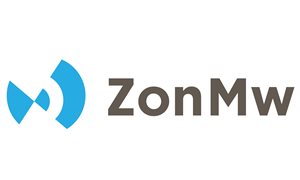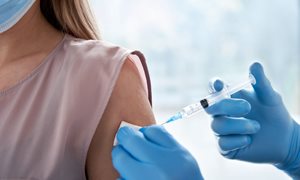19 June 2018
After many years of struggle by many organizations and patient’s advocates this is fantastic news for all patients on the waiting list for an organ transplant. The current law is based on a so-called opt-in system. All adults can register their wish concerning organ donation after death: 25% have a positive registration, 10% have a negative registration, and 65% have no registration. In the latter cases, relatives of the deceased person are approached for consent to remove organs for donation. In practice, in about two thirds of these cases, the relatives do not give consent although it is known from polls that the majority of the Dutch population is in favour of organ donation. In the upcoming system, all people will again receive a registration form that includes options for positive and negative registration, as well as the option to leave the decision with the relatives. Those who do not return the registration form are supposed to be in favour of organ donation and they will twice receive a letter to clarify this consequence of not returning the registration form. This way, it is expected that there will be a rise in the number of positive registrations (either active or passive).
Even if the increase in the number of organ donations would turn out to be less than hoped for, I feel that the new law means a significant improvement for those who are faced with the sudden loss of a beloved one. The new system will force a decision on postmortal donation during life for each subject, which fits with the right of self-determination. Relatives of a deceased person are no longer asked to make a difficult decision on donation by someone else on a moment that is already dramatic enough.
While this is all good news, it is unlikely that the shortage of deceased organ donors will be solved completely in the near future. For patients in need for a kidney transplant, the gap is partly filled by donation from healthy living subjects. In the Radboudumc we celebrated the 50th anniversary of kidney transplantation earlier this year. In a historic overview of kidney transplantation in our center it was shown that the percentage of living donor transplantations has increased from about 10% to 70% over the last 25 years. While most donors are relatives or household members of the patients, about 10% of the donors have no relationship with the recipient who they even do not know. In my view, these altruistic donors are real heroes and deserve great admiration. During our anniversary symposium, one of the altruistic donors gave an inspiring talk about global achievements in reducing poverty and improving health, fueling an optimistic look at the future. With a growing number of people like him, for whom giving is more important than taking, we should be able to realize our ideals, including a transplant organ for anyone who needs it!
Luuk Hilbrands is member of theme Renal disorders.
 The new law on organ donation, including an active donor registration system, will become effective in the summer of 2020!
The new law on organ donation, including an active donor registration system, will become effective in the summer of 2020!
After many years of struggle by many organizations and patient’s advocates this is fantastic news for all patients on the waiting list for an organ transplant. The current law is based on a so-called opt-in system. All adults can register their wish concerning organ donation after death: 25% have a positive registration, 10% have a negative registration, and 65% have no registration. In the latter cases, relatives of the deceased person are approached for consent to remove organs for donation. In practice, in about two thirds of these cases, the relatives do not give consent although it is known from polls that the majority of the Dutch population is in favour of organ donation. In the upcoming system, all people will again receive a registration form that includes options for positive and negative registration, as well as the option to leave the decision with the relatives. Those who do not return the registration form are supposed to be in favour of organ donation and they will twice receive a letter to clarify this consequence of not returning the registration form. This way, it is expected that there will be a rise in the number of positive registrations (either active or passive).
Even if the increase in the number of organ donations would turn out to be less than hoped for, I feel that the new law means a significant improvement for those who are faced with the sudden loss of a beloved one. The new system will force a decision on postmortal donation during life for each subject, which fits with the right of self-determination. Relatives of a deceased person are no longer asked to make a difficult decision on donation by someone else on a moment that is already dramatic enough.
While this is all good news, it is unlikely that the shortage of deceased organ donors will be solved completely in the near future. For patients in need for a kidney transplant, the gap is partly filled by donation from healthy living subjects. In the Radboudumc we celebrated the 50th anniversary of kidney transplantation earlier this year. In a historic overview of kidney transplantation in our center it was shown that the percentage of living donor transplantations has increased from about 10% to 70% over the last 25 years. While most donors are relatives or household members of the patients, about 10% of the donors have no relationship with the recipient who they even do not know. In my view, these altruistic donors are real heroes and deserve great admiration. During our anniversary symposium, one of the altruistic donors gave an inspiring talk about global achievements in reducing poverty and improving health, fueling an optimistic look at the future. With a growing number of people like him, for whom giving is more important than taking, we should be able to realize our ideals, including a transplant organ for anyone who needs it!
Luuk Hilbrands is member of theme Renal disorders.
Related news items

Grants for heart and kidney research Two awards to Radboudumc in Open Competition ENW-XS
21 July 2022Two researchers from the Radboudumc receive a grant from the NWO within the Open Competition of the Exact and Natural Sciences. They are Thijs Eijsvogels, who studies the heart, and Pieter Leermakers, who studies the kidneys.
go to page
Determining fluid balance of patients by measuring electrical body resistance
16 November 2021 PhD research Jantine Jansen-Schotman offers starting points for better analysis. go to page
Consortium grant Dutch Kidney Foundation for ArtDECO consortium
8 September 2021 The Dutch Kidney Foundation awarded a consortium grant of 1.5M euros to the ArtDECO consortium, >400K euros of which will be allocated to the Radboudumc and more specifically to the AGORA data- and biobank. go to page
Dutch Children's Formulary now also in use abroad Drug database for pediatric dosing available online for German, Austrian and Norwegian physicians
30 April 2021 The Kinderformularium, developed in the Netherlands, now also provides pediatricians and pharmacists abroad with a database of drug dosage recommendations specifically aimed at treating children. go to page

